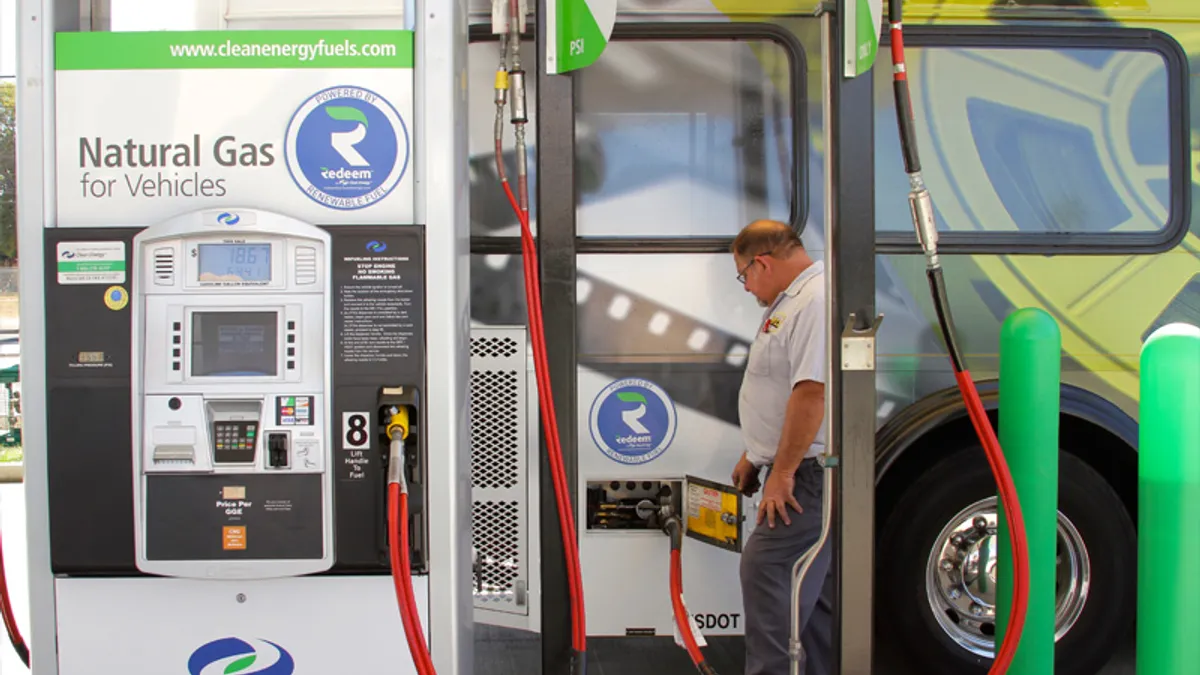Dive Brief:
- In a recent press statement, Clean Energy Fuels Corp. announced it has entered a multi-year contract with the Los Angeles County Metropolitan Transportation Authority (Metro) to fuel the city's fleet of transit buses with Clean Energy's Redeem brand of renewable natural gas (RNG).
- The agreement will begin with a one-year pilot at one of Metro's compressed natural gas (CNG) stations, which fuels 200 CNG buses. If successful, the agreement will expand across all 11 of Metro's CNG stations for four years.
- The RNG use is expected to reduce Metro's greenhouse gas (GHG) emissions by 520,000 metric tons, compared to the use of regular natural gas, over the five-year period.
Dive Insight:
As more cities prioritize goals to combat climate change, consideration into how transit emissions are playing a role in the city's overall GHG output is crucial. Just as the role of electric vehicles (EVs) has become more prominent due to their environmental benefits, the use of natural gas vehicles — including RNG-run trucks and buses — is becoming increasingly popular.
CNG is also a more environmentally-friendly option for cities looking to shift away from diesel, however the fuels are derived in different ways. Pete Keller, vice president of recycling and sustainability at Republic Services, a leading waste industry company, recently explained the difference to Waste Dive.
"From a molecular standpoint, the fuel is identical – one carbon atom and four hydrogen atoms, commonly called natural gas or methane. The difference is how the gas was formed. Much of the natural gas in the use today was created deep in the Earth through a thermogenic process involving heat and pressure. While natural gas is much cleaner than other traditional fuels, it is fossil based and is considered non-renewable," he explained. "RNG is formed through a biogenic process involving microorganisms that consume organic material, or biomass, and produce methane. The RNG is non-fossil and considered renewable."
Republic has recently expanded its partnership with Redeem to decrease its emissions output in markets across the nation, which will benefit the environments it works in and will likely benefit Republic's relationship with those cities.












